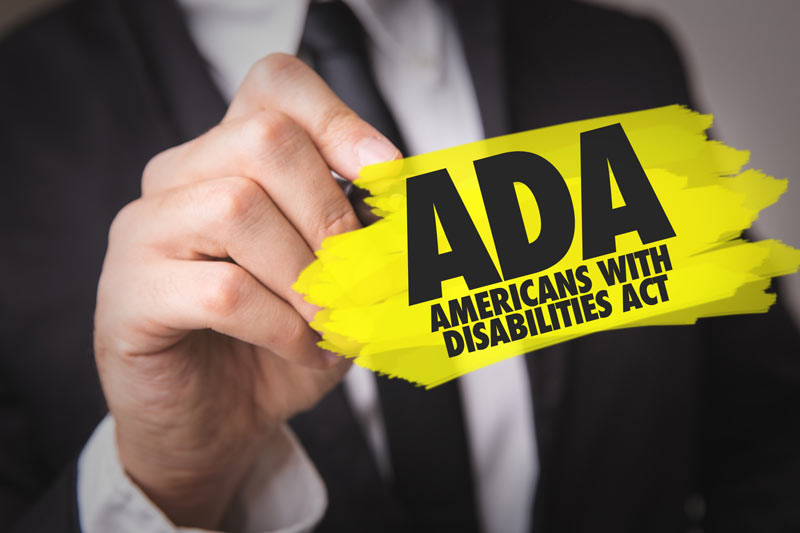Should Your Website Be Compliant With ADA?
According to the United States Census Bureau, at least 40 million Americans currently live with a disability.
With such a large segment of the population, it’s hard to believe that many professional websites still have no provisions for Americans with Disabilities.
The failure of many companies to address ADA compliance is only hurting their own business!
In this discussion, we’re going to ask, “Do webpages need to be ADA compliant?” and cover what the ADA rules actually say.
What is ADA?
The Americans with Disabilities Act (ADA) protects people with disabilities against discrimination. Not only does this mean “employment and transportation” but also in “communications and public accommodations.”
In theory, this encompasses all aspects of living and culture, including internet communications. According to The Pew Research Center, only seven percent of Americans don’t use the Internet in their daily life.
Surprisingly, the ADA does not mention the Internet at all.That means a remarkable number of people with disabilities have been excluded from daily American living and internet convenience.
ADA Lawsuits
In recent years, some business owners have been sued for failing to provide adequate internet services for disabled users. However, some state courts dispute what obligation business owners have in this regard.
Besides government websites, one must define what online businesses count as “public accommodation” and whether or not these businesses require a physical office.
ADA compliance is not just a matter of respect but also becomes one of accountability.Some businesses could lose an accessibility civil lawsuit, even if the Department of Justice stalls on enforcing any federal laws.
If local courts rule in favor of the plaintiff, the company may have to pay fees, in addition to making their websites compliant.
Do Websites Need to be ADA Compliant?
At present, no commercial businesses have been penalized by federal or state courts. None has yet created standardized guidelines.
However, many progressive companies are taking the lead. They can still follow a general set of ADA compliance rules called Web Content Accessibility Guidelines.
Some of these proposed standards may someday serve as a foundation for ADA compliance.
To be fully ADA compliant, a professional website must create accessibility options for those who have problems with:
- Vision
- Hearing
- Cognitive perception
- Learning disabilities
- Language disabilities
Provisions could include:
- Easy to see visual and audio alternatives to text
- Easier web navigation with keyboard accessibilities
- Site content that adapts to assistive technologies
- The option for easier-to-understand content
Start Planning for ADA Compliance Now!
Great strides are being made for ADA compliance even before any laws get passed. There are not only audio technologies to look at, but even refresh able Braille text for touchscreens.
Even small businesses can develop new strategies to target their message to an extra 40 million potential customers.
For more on improving a site’s usability and ADA rules for websites, our team can help with our website development capabilities.
Remember, poor site navigation is very distracting, especially to people with disabilities. Simple navigation always works best.
We can help you with:
- Site design
- Search Optimization
- Email automation
- Content publishing
- Social media
- Digital marketing
Why not contact us and schedule a time to talk about your marketing needs?
eGlobal Web Solutions specializes in marketing your business via the digital marketplace. We use search engine optimization, social and review promotion, and Email marketing for all types of businesses from local to global. We utilize various digital marketing techniques to increase your internet presence, optimize your traffic and generate new business.
 760.530.6207
760.530.6207 info@elocalsolutions.com
info@elocalsolutions.com
